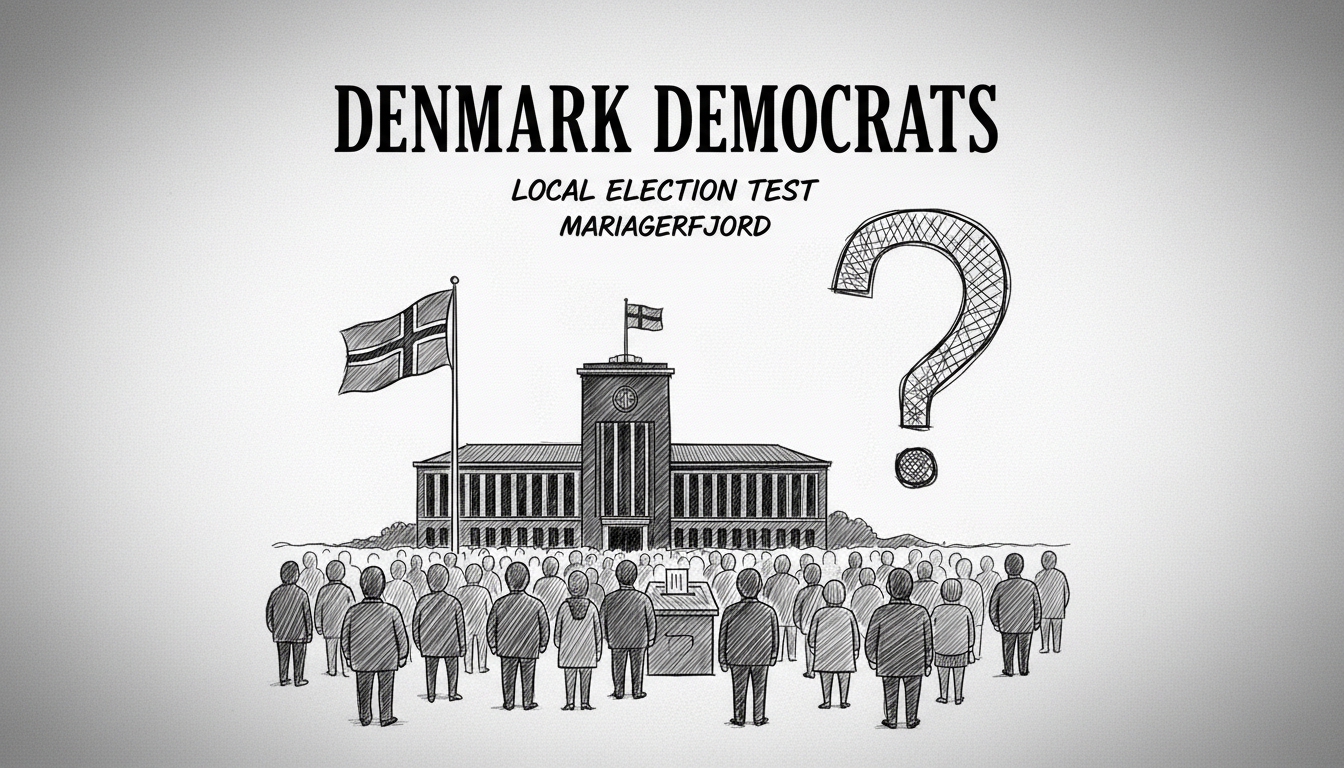Danish voters can now cast ballots for the Denmark Democrats party in municipal elections for the first time. The political newcomer faces its most critical test in Mariagerfjord Municipality, where party leader Inger Støjberg resides. This local race could determine who becomes the next mayor and reveal the party's staying power beyond national politics.
The Denmark Democrats scored impressively in Mariagerfjord during the parliamentary election, capturing over 23 percent of votes in the district. Now the party hopes to translate that national success into local influence. Their performance could tip the balance between traditional red and blue political blocs that have dominated Danish local politics for decades.
Mogens Brink Christensen, a resident of Hørby, captures the local sentiment. He says the situation remains unpredictable but notes the Denmark Democrats have strong chances because their party leader is local. The personal connection matters in municipal politics where community ties often outweigh party affiliations.
Recent elections show Venstre and Social Democratic candidates running extremely close in Mariagerfjord. The margin has been so narrow that even modest vote shifts could change the outcome. This time, Conservative candidate Laura Holm joins the race, creating a three-way contest for the mayor's position.
Svend Madsen, the Denmark Democrats' lead candidate, makes their position clear. He states the party will support a blue bloc mayor, though whether from Venstre or Conservatives remains undecided. The current mayor Mogens Jespersen from Venstre steps down after twelve years, guaranteeing fresh leadership regardless of the election outcome.
Despite Støjberg's strong personal appeal during the parliamentary election, where she received 5,472 personal votes, local recognition of the party's municipal candidate remains limited. Madsen acknowledges this reality during a voter meeting in Hørby featuring traditional Danish pork with parsley sauce. He admits he likely won't match Støjberg's personal vote count but welcomes any support.
Madsen outlines pragmatic ambitions rather than chasing the mayor's chain directly. He emphasizes seeking maximum influence rather than the top position. Better election results mean greater ability to shape local decisions, he explains, taking things step by step.
Other candidates express mixed feelings about the Denmark Democrats' potential strong showing. Venstre's Jesper Skov Mikkelsen views their possible kingmaker role positively, noting their stated reluctance to support red bloc candidates. Social Democratic candidate Leif Skaarup, who has pursued the mayor position multiple times, remains cautiously optimistic about his chances while acknowledging the Denmark Democrats' central leadership has essentially ruled out supporting him.
Skaarup highlights the fundamental difference between parliamentary and municipal elections. Local votes focus more on personalities than parties, he argues, suggesting this dynamic will shape the final outcome. Even if the Denmark Democrats back a blue bloc mayor, they might choose the Conservative candidate over Venstre, adding another layer of uncertainty.
The Denmark Democrats face the classic challenge for new parties: converting protest votes into sustained local support. Their performance in Mariagerfjord will test whether they can build lasting political structures beyond their charismatic leader. Municipal elections often reveal which new parties possess staying power and which fade after initial enthusiasm.
Danish local government handles crucial services like schools, elderly care, and urban planning. The mayor wields significant executive power, making these elections profoundly impactful for daily life. Mariagerfjord's choice will signal whether voters trust the new party with practical governance or prefer established alternatives.
The election occurs against Denmark's unique municipal structure where mayors combine political leadership with administrative responsibility. This system gives local elections immediate consequences for how communities function and develop. Mariagerfjord's decision will resonate beyond its borders as political observers gauge the Denmark Democrats' local appeal.

